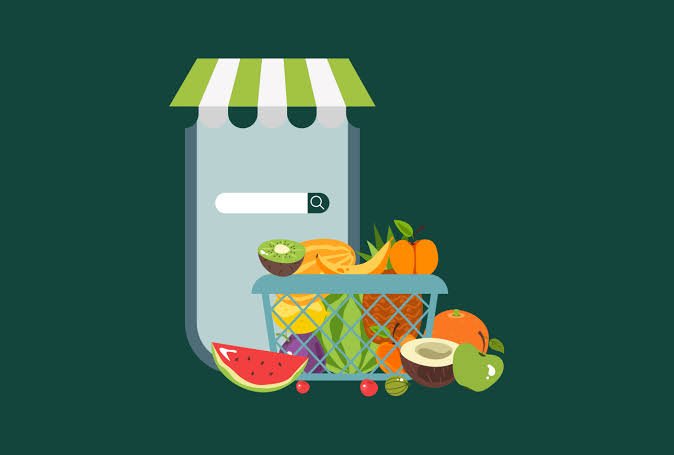In a market that thrives on efficiency and innovation, the food and beverage industry is no exception. With a global valuation of $7.2 trillion in 2023, this sector plays a critical role in daily consumer life. However, the intricate supply chain and rising consumer demands have pushed wholesalers, distributors, and manufacturers to adopt more sophisticated digital solutions. Enter the B2B food and beverage commerce platform, a transformative tool that streamlines the wholesale process and connects businesses like never before.
The Evolution of B2B Commerce in the Food and Beverage Industry
Traditionally, food and beverage transactions were handled through manual processes, involving phone calls, emails, and face-to-face meetings. This method was time-consuming, prone to errors, and lacked real-time updates, leading to stockouts, delivery delays, and dissatisfied customers. The rise of digital commerce has changed this narrative. A B2B food and beverage commerce platform bridges the gap between suppliers and buyers, enabling seamless transactions, inventory management, and communication.
In the food and beverage sector, where speed, precision, and quality are paramount, leveraging a robust digital platform can be a game-changer. Businesses can now cater to a broader range of customers, offer diverse products, and meet stringent safety standards more efficiently.
Key Features of a B2B Food and Beverage Commerce Platform
For businesses considering an upgrade to a B2B food and beverage commerce platform, understanding the core features that drive success is crucial. Here’s what makes these platforms invaluable:
1. User-Friendly Interface and Experience
A well-designed platform should be easy to navigate, allowing users to quickly find products, place orders, and access information. A streamlined user experience minimizes friction, reduces errors, and enhances customer satisfaction. For instance, intuitive product categorization and a simple checkout process can significantly improve the buyer’s experience, encouraging repeat purchases.
2. Advanced Search and Filtering
The food and beverage industry is diverse, with products ranging from fresh produce and packaged snacks to specialty beverages. An effective B2B food and beverage commerce platform offers advanced search and filtering options, enabling users to find specific items based on attributes like organic certification, dietary requirements (e.g., gluten-free, vegan), brand, and price range. This functionality not only saves time but also helps buyers make informed purchasing decisions.
3. Bulk Ordering Capabilities
Bulk purchasing is a defining feature of B2B transactions, especially in the food and beverage sector, where retailers, restaurants, and catering services often need large quantities. A robust platform simplifies this process with features like quantity discounts, order templates for frequent purchases, and quick reorder options. These tools enable buyers to place large orders efficiently, streamlining the procurement process and fostering better business relationships.
4. Integration with Inventory and Supply Chain Systems
The food and beverage industry deals with perishable goods, making real-time inventory management essential. An integrated B2B food and beverage commerce platform connects seamlessly with existing inventory systems, providing up-to-date stock levels and preventing overstocking or stockouts. This visibility into inventory helps businesses optimize their supply chain operations, reduce waste, and improve order fulfillment.
5. Secure Payment and Checkout Options
Security is a top priority in B2B transactions. The platform must offer secure payment processing, including encrypted gateways and multiple payment options such as bank transfers, credit cards, and invoicing. Features like multi-factor authentication and compliance with industry standards (e.g., PCI DSS) help protect sensitive financial data, building trust between buyers and suppliers.
Benefits of a B2B Food and Beverage Commerce Platform for Wholesalers
For wholesalers, adopting a B2B food and beverage commerce platform can transform their business operations. Here are some of the most significant benefits:
1. Expanded Market Reach
With a digital platform, wholesalers are no longer limited by geographical constraints. They can extend their reach to new markets, attract international clients, and offer products to a wider audience. By going online, wholesalers can tap into new customer bases, driving sales growth and enhancing brand visibility.
2. Streamlined Order Management
Managing orders manually is a labor-intensive process prone to errors. A B2B food and beverage commerce platform automates order processing, from receiving orders to invoicing and fulfillment. This automation reduces administrative tasks, minimizes errors, and speeds up the entire process, allowing wholesalers to handle larger volumes efficiently.
3. Enhanced Customer Relationships
Customer satisfaction is crucial for building long-term business relationships. The platform’s features, such as personalized pricing, product recommendations, and real-time order tracking, enable wholesalers to provide a tailored experience for each buyer. Additionally, CRM integration helps businesses manage customer data, track order history, and offer targeted promotions, further enhancing customer loyalty.
4. Real-Time Inventory Updates
Effective inventory management is a cornerstone of successful wholesale operations. A connected platform provides real-time visibility into stock levels, helping wholesalers anticipate demand, avoid overstocking, and reduce waste. By optimizing inventory turnover, businesses can maintain a steady supply of products, ensuring customers get what they need when they need it.
5. Detailed Sales Analytics and Insights
Data-driven decision-making is key to business success. A B2B food and beverage commerce platform offers in-depth analytics, allowing wholesalers to track sales trends, customer behavior, and product performance. These insights help businesses identify top-selling items, forecast demand, and refine their marketing strategies, ultimately driving growth and profitability.
Advantages for Buyers Using a B2B Food and Beverage Commerce Platform
While wholesalers benefit significantly, buyers also enjoy a range of advantages when using a B2B food and beverage commerce platform:
1. Convenience and Flexibility
Buyers can place orders 24/7, without being restricted by business hours. This convenience is particularly valuable for restaurants and retailers with fluctuating schedules. They can order products whenever it suits them, ensuring they never run out of stock during peak hours.
2. Access to a Wide Range of Products
A digital platform provides buyers with access to an extensive catalog of products, far more than what traditional channels might offer. Buyers can explore various options, compare products, and find specialty items that meet their specific needs, all from a single source.
3. Personalized Pricing and Promotions
In B2B transactions, pricing is often negotiated based on factors like order volume and buyer history. A B2B food and beverage commerce platform supports custom pricing, offering discounts and promotions tailored to individual buyers. This personalized approach helps businesses secure better deals and strengthens the buyer-supplier relationship.
4. Efficient Order Tracking and Management
Buyers can easily track their orders in real-time, receiving updates on shipment status and estimated delivery times. This transparency reduces uncertainty and helps buyers plan their operations better, ensuring timely restocking and smooth business operations.
Implementing a B2B Food and Beverage Commerce Platform
To maximize the benefits, businesses must carefully plan the implementation of a B2B food and beverage commerce platform. Key steps include:
1. Assessing Business Needs
Identify the specific needs of your business and customers. Consider factors like product variety, order volume, pricing structures, and required integrations. Understanding these elements will guide the selection of a platform that meets your unique requirements.
2. Selecting the Right Platform
Choose a platform that aligns with your business goals, offers the necessary features, and can scale with your growth. Leading solutions like WizCommerce, TrueCommerce, and Zoey provide specialized tools for food and beverage wholesalers, catering to the unique demands of the industry.
3. Training and Support
Ensure that your team is well-trained in using the platform. Comprehensive training programs and ongoing support can help users navigate the system efficiently, leading to better customer service and improved operations.
The Future of B2B Food and Beverage Commerce
As technology continues to advance, the future of B2B food and beverage commerce platforms looks promising. Emerging trends like AI-driven recommendations, blockchain for supply chain transparency, and mobile access are set to reshape the industry further. Businesses that adopt these innovations early will be better positioned to meet customer expectations, enhance efficiency, and stay competitive in the market.
Conclusion
The adoption of a B2B food and beverage commerce platform is no longer optional; it is essential for businesses looking to thrive in an increasingly digital and fast-paced market. By embracing these platforms, companies can streamline their operations, improve customer satisfaction, and unlock new growth opportunities. For wholesalers, manufacturers, and retailers alike, investing in a robust B2B platform is a strategic move that promises efficiency, scalability, and long-term success.
Passionate content writer and savvy blog publisher, Aamir crafts compelling stories and insightful articles that captivate and inform. With a knack for blending creativity and strategy, they bring fresh perspectives to every piece. Dive into their world of words and discover content that resonates.





